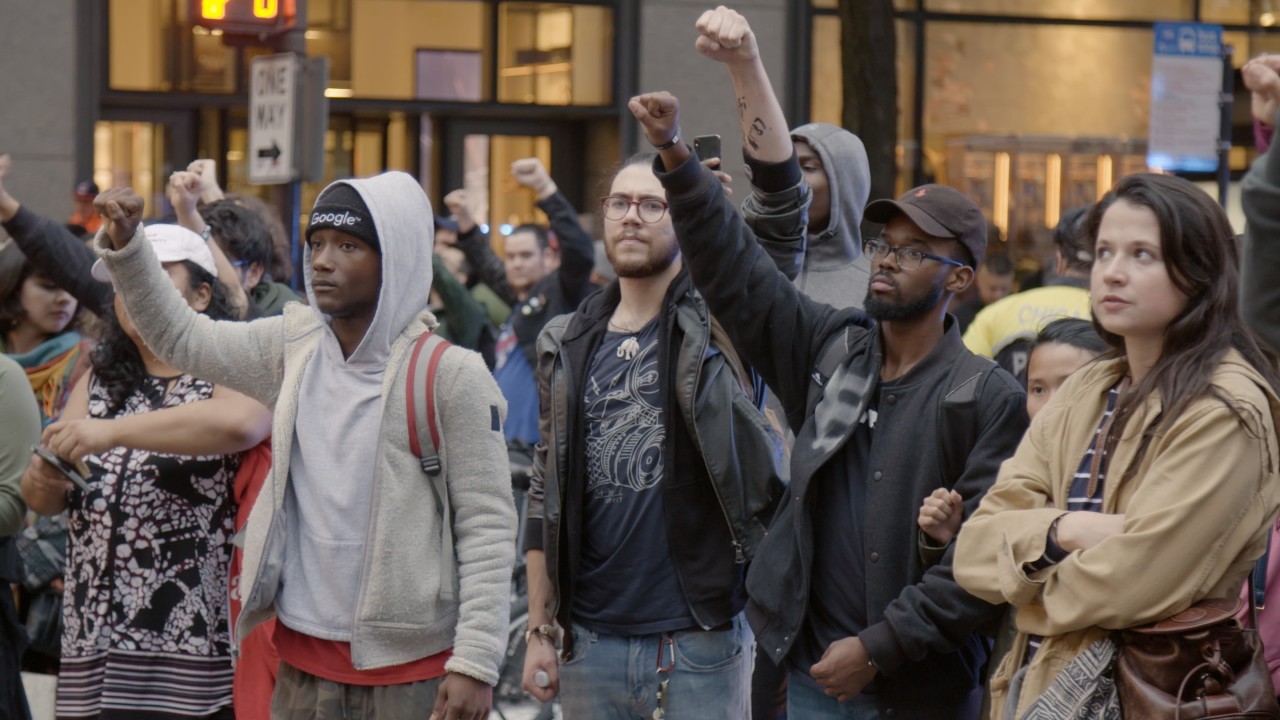Want the best of VICE News straight to your inbox? Sign up here.The song that helped launch the career of 19-year-old Taymor McIntyre, better known as Texas rapper Tay-K, is what ultimately helped get him sentenced to 55 years in prison.Tay-K was found guilty of robbery and murder Tuesday in the death of 21-year-old Ethan Walker during a botched home invasion in the Dallas-Forth Worth area in 2016. The plan went south when someone shot Walker, a father of one, while his hands were up in surrender. Though Tay-K didn’t pull the trigger, he was tasked with finding money and drugs in Walker’s home.Prosecutors used the music video and lyrics from Tay-K’s hit single, “The Race”, as a key piece of evidence while interviewing their last witness Monday. The song recounts Tay-K’s criminal adventures fleeing house arrest, which he was under in connection to the fatal 2016 robbery. The rapper escaped in March 2017 by cutting off his GPS-enabled ankle bracelet before tweeting out “fuck dis house arrest shit, fuck 12, they gn hav to catch me on hood.”Tay-K released “The Race” shortly after he hit the road. In the song, the rapper seemingly admits both his motive for escaping and his participation in the robbery, all while toting a gun:“Fu-fu-fuck a beat, I was tryna beat a caseBut I ain't beat that case, bitch, I did the race”“We was plottin', y'all was tryna get the pack inGet the pack in, you get robbed for a fraction (Gimme that shit)”Prosecutors also showcased the cover of Tay-K’s 2017 EP, “#LivingLikeLarry,” which features the rapper sitting on a kitchen countertop holding a gun.Tay-K's controversial single took him from underground artist to mainstream rapper. “The Race” would peak at No. 44 on the Billboard Hot 100 charts and eventually go platinum thanks to the real-life drama surrounding the fugitive artist.The rapper would spend three months successfully evading authorities, all the while releasing new music, before being captured. During his run from the cops, Tay-K allegedly robbed a 65-year-old in Arlington, Texas, in May 2017. He’s been charged but is still awaiting trial.The use of lyrics and even social media posts in the courtroom have become more common over the last decade.In 2014, Brooklyn rapper Bobby Shmurda and 14 other members of his GS9 collective were arrested and later indicted, partly due to the lyrics in several of the rapper’s street anthems. Shmurda was accused of leading the group, which carried out a number of crimes in New York, including drug dealing and shootings.Most famously, his 2014 hit single “Hot Nigga” features the now-iconic line “Mitch caught a body about a week ago,” which referred to an attempted murder allegedly carried out by Shmurda’s real-life GS9 accomplice Deshain “Mitch” Cockett prior to the release of the song.Although Shmurda insisted that GS9 was just a group of his childhood friends — and not a gang — he eventually pleaded guilty to weapons possession and conspiracy. He’s now serving seven years in state prison.Earlier this year, rapper YNW Melly’s hit single “Murder On My Mind” was also used as evidence in his double-murder case, in which the rapper allegedly killed two of his close friends. He’s currently facing the death penalty.But the legal legitimacy of using song lyrics as evidence remains unclear. In 2014, Vonte Skinner, a man accused of attempted murder, successfully appealed the use of violent rap lyrics — found scribbled in personal notebooks seized in his home — in his case.The New Jersey Supreme Court oversaw the appeal and ruled that creative works shouldn’t be used as evidence against an artist.“One would not presume that Bob Marley, who wrote the well-known song ‘I Shot the Sheriff,’ actually shot a sheriff, or that Edgar Allan Poe buried a man beneath his floorboards, as depicted in his short story ‘The Tell-Tale Heart,’ simply because of their respective artistic endeavor on those subjects,” the justices wrote in their decision. “The defendant’s lyrics should receive no different treatment.”Christina Sterbenz contributed to this report. Cover image: This undated file photo provided by the Tarrant County Sheriff's Office shows Taymor McIntyre. McIntyre, a Texas teenager who rapped under the name Tay-K, has been sentenced on Tuesday, July 23, 2019, to 55 years in prison. (Tarrant County Sheriff's Office via AP File)
Cover image: This undated file photo provided by the Tarrant County Sheriff's Office shows Taymor McIntyre. McIntyre, a Texas teenager who rapped under the name Tay-K, has been sentenced on Tuesday, July 23, 2019, to 55 years in prison. (Tarrant County Sheriff's Office via AP File)
Advertisement
Advertisement
Other convictions
Advertisement
